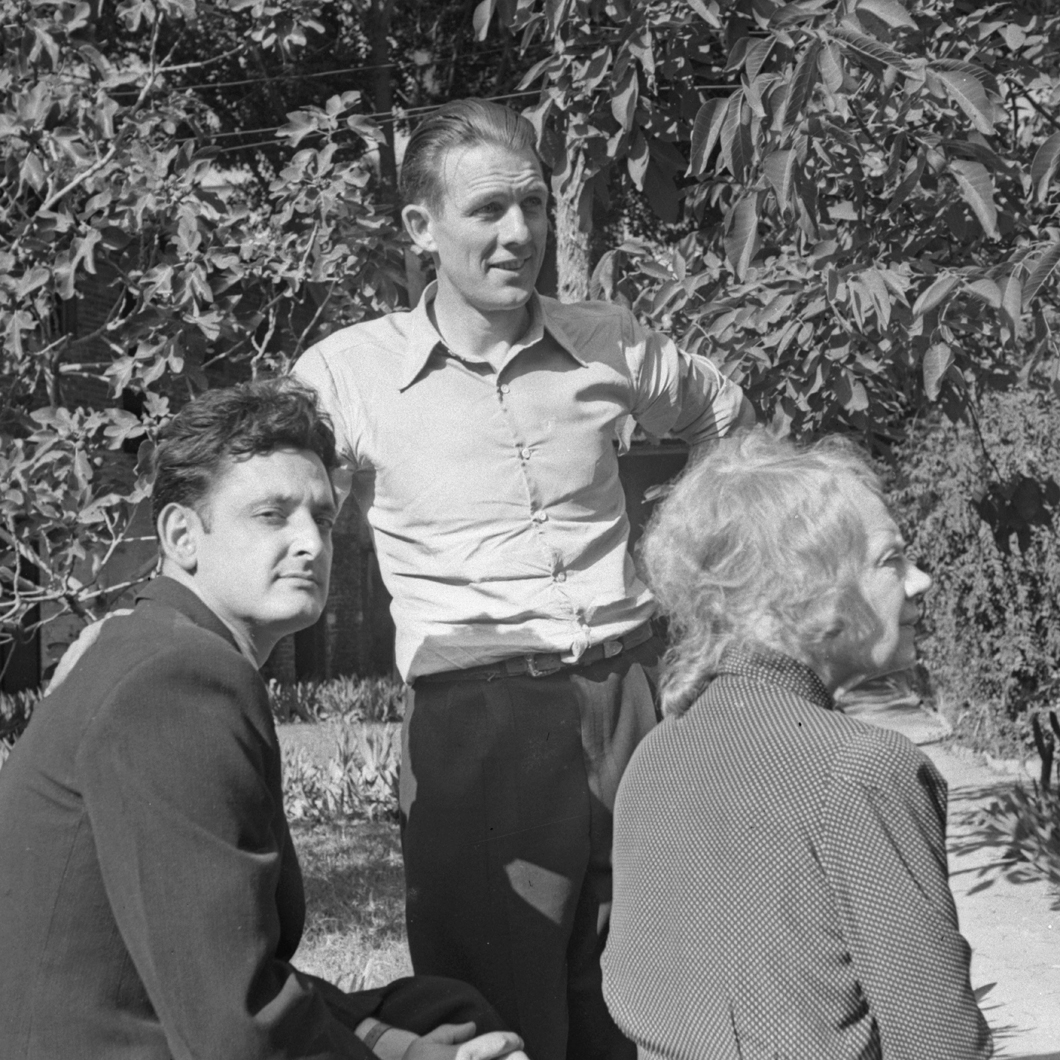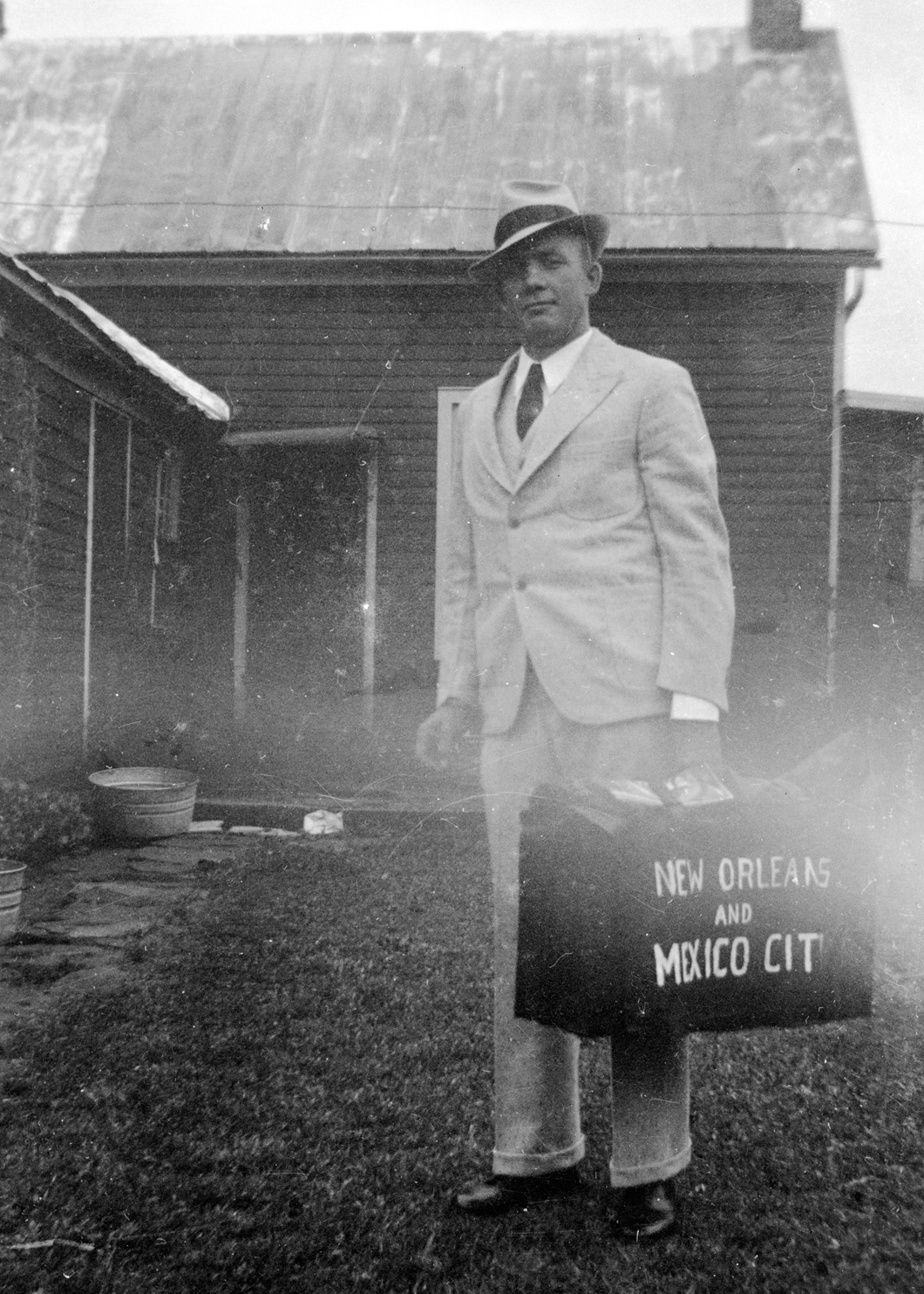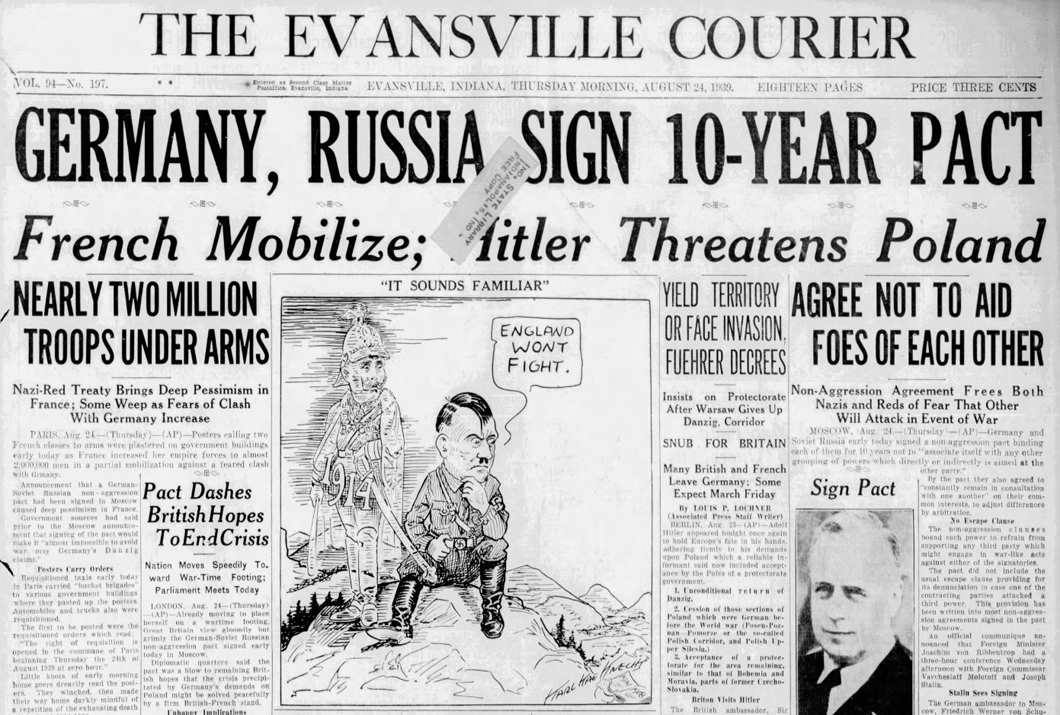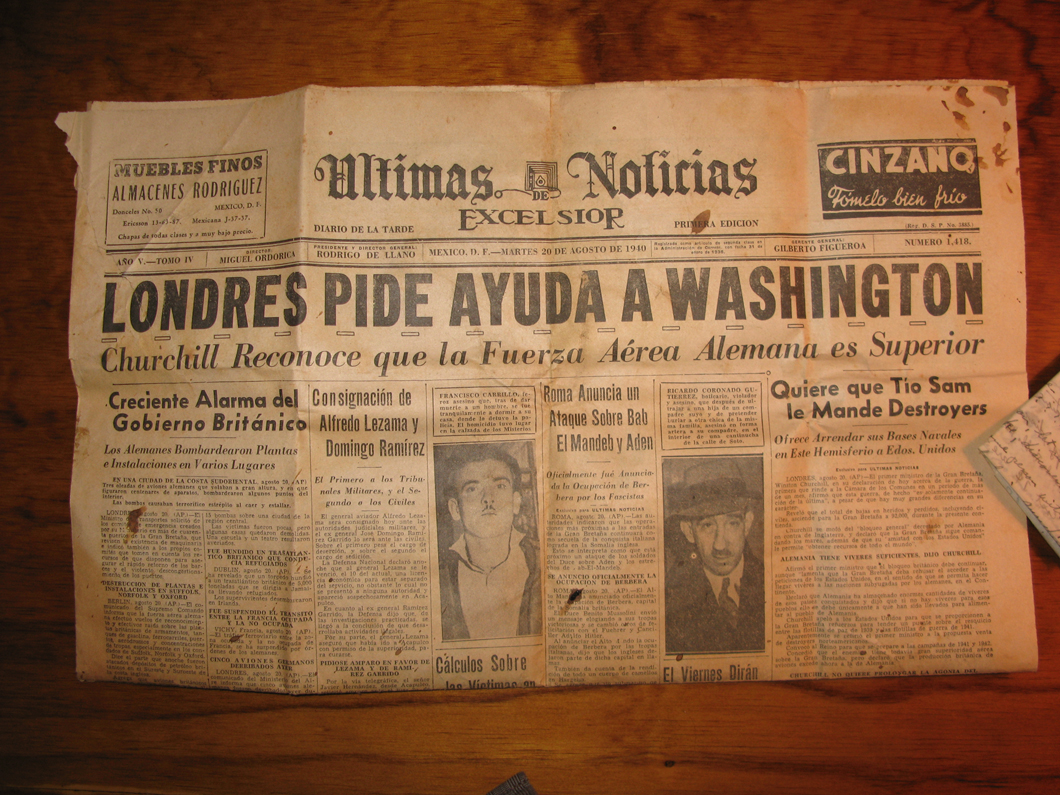
at right - Henry Schnautz, Natalia Trotsky, and Grandizo Munis, taken on Henry's return visit to the Trotsky compound May 1946

Henry told me sometime in the 1980s that when he read the story of the first attempt on Trotsky's life May 24, 1940, he was astonished that the attackers could get off so many shots into the buildings without anyone returning fire. He wrote the New York office of the Socialist Workers Party, told them he was a marksman and offered his service.
I found a short letter from SWP attorney Albert Goldman from June 15, 1940 that said "I have communicated with people in Mexico City and told them you will arrive within 6 to 8 weeks." Let us know and "we will write a letter of introduction. We might be able to use you down there." Henry crossed the border two weeks later. He either hitchhiked or took a bus to Laredo, then took a bus arriving in Mexico City on July 1. His first stay was at the Danky hotel in Mexico City. On July 14, 1940, the 29-year old writes home, says his address has changed, and doesn't mention Trotsky or the compound. Later he says July 12th is the day he became a guard for Leon Trotsky. His father writes him a letter talking about the university in Mexico. I wish I had the letter where he broke the news to his Indiana parents that he was a bodyguard for the world's most famous communist-in-exile. But they seemed to take it in stride. Henry had been active for several years in the Socialist Workers Party, and with other causes before that. The leaders in New York knew who he was well enough. It was the SWP that sent other American guards to Mexico. An author on Trotsky, Bert Patenaude, who has studied the SWP archives, told me that the office was upset Henry had gone to Mexico prematurely. Joseph Hansen, Trotsky's top aide at the time in Mexico, remembers that it was Trotsky who insisted on putting him into the guard. He wanted to get to know this real live American fresh off the farm. They hired him, about 5 weeks before the fatal attack on Leon Trotsky. On Aug 4, 1940, he continues his journal he started on the bus trip down, and writes about being guard on the night shift.
As far as I know Henry never wrote any retrospective accounts of his Trotsky days. The only letter I have is a brief account to the son of a friend who had asked him if he could tell him about Trotsky. Henry wrote a few sentences about the day of the attack. There was a letter - the family called it "the letter" - that he was writing to his sister Marie when he heard Trotsky scream. He came back hours later and finished the letter and mailed it. Marie suggested years ago it should be in the newspaper. I was never able to find it. I found "the envelope" but it was empty. If anyone in the family ever sees it, send a photocopy my way. Aug 20, 1940 is the date. His journal accounts are written during moments of calm. After the attack, he stayed at the compound employed as guard, chauffeur, handy man, gardener, rabbit and chicken keeper, dishwasher, for Natalia Trotsky, until Feb 1943, when he returned to the states and was inducted into the army.

The Duty Roster - found wadded up in the bottom of an old box of Mexico memorabilia
in response to a speech by a Salvation Army Colonel
tells Henry to prepare the rest of the membership in Evansville that they will be expelled from the Socialist party.
between 1938-1940
Secretary for the SWP leader
tells Henry to hang in there. Burnham was the leader of the faction that would leave the Socialist party the next year after a public fight with Trotsky.
detailed letter about experience and conditions in Evansville

"I'm just a working stiff and those who imagine the revolution must be postponed
until American proletariat learn Hegel are nuts...
Sticking label 'petty bourgeois' on an opponent is no proof at all that his ideas are wrong.
If I could get whole petty bourgeois population of U.S. to accept our
program I believe party would be glad to recruit them - since almost no
other converts are available."
This is a local viewpoint of the grand problem that plagued Trotsky the last year of his life, precipitated by the Hitler-Stalin pact, the issue that caused the rift in the American followers, the issue that Frank Jacson used to get alone with Trotsky in his study.
"I have communicated with people in Mexico and told them you would arrive..."
Henry kept a short-lived journal starting on the bus ride down, and ending about the time of the attack on Trotsky
On the way to Mexico City, Henry starts a journal
I stroll thru the patio. Here they're adding another story to the guard's quarters, expecting to put on about 3 or 4 more men. I pass Seva's, Charley's and Walter's doors - each doorway has white patches at waist height where recent repairs have been made. One side of Walter's isn't complete. Here a whole corner 8" high and 6" wide was shot off by a burst of machine gun fire. The tower over Jake's room is a recent addition. It was right in front of his door, behind the huge eucalyptus tree, that one machine gunner stood.
Otto prefers to stay below so I go to the main central tower. From this tower you can communicate with the other three towers, the gate and all the rooms either by telephone or buzzers. The lights and alarm are controlled from here. Most of the guns are stored here in the daytime. The tower controls the gate electrically. A trap door connects it with the library underneath.
The laborers were all busy putting the roof on the 2nd floor that was added to the guard's quarters, so I was given the job of setting a marble plaque in the inner door facing, in memory of Robt. S. Harte, the young guard who was murdered when the assault on Trotsky's life occurred last May 24. We were done before the newspapermen arrived
Flashes apparently miles in length cause the mts. to suddenly jump into full view, towering high over the city and then as suddenly vanish.
From where I'm standing guard the world seems bright and spring-like... My voice chokes... My heart is being squeezed...
Henry meets Chavez, one of the world's greatest pistol shots, on the Mexico City police pistol range, and shows him his National Rifle Association membership card.

Rev. Moore, also mentioned in the 1939 Malone letter, writes Henry after the assassination, apparently at Henry's request, and tells him what he knows of the Weil sisters
letter from a book, Joe Hansen, Trotsky aide, and the American consul
"Unlike the other guards, Trotsky pointed out, Schnautz had a farm background. I recognized that Trotsky really wanted to get acquainted with a live American fresh off the farm. He was a dead shot with a rifle, his preferred firearm."
A draft of a letter Henry sent to the son of a friend in Belgium who had asked about Trotsky. He gives a brief account of the last day.
Jake was a guard from Minnesota who had arrived shortly before the first attack, and went back home shortly after the second attack
taken from a photo from the 1920's
the compound after the attack
Henry is the new driver in Mexico City
Henry met two sisters at the opera. They invite him to play poker
Henrys long letter to M. de la Luz and Rebecca - sisters met at the opera - saying who he is and what he is doing in Mexico. They had a friend call him to say they would not see him again.
Describing the tense scene between the guards and the Mexican police when they bring Jacson back to the compound to reenact the crime. Appears to be Sept. 8 1941, a year after the attack, during the trial.
J Edgar Hoover mentions Henry Schnautz in a memo in 1942, but I think it says more about the Soviets handling Hoover than it does Henry Schnautz.